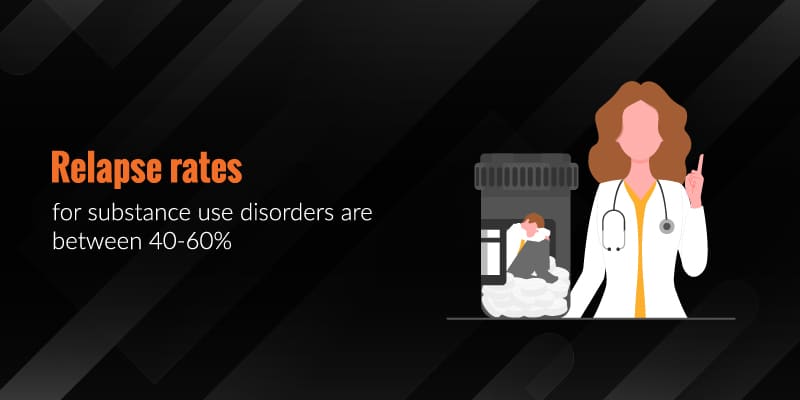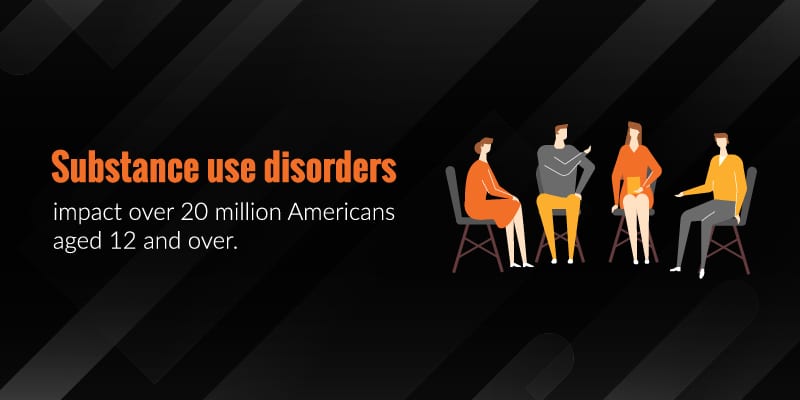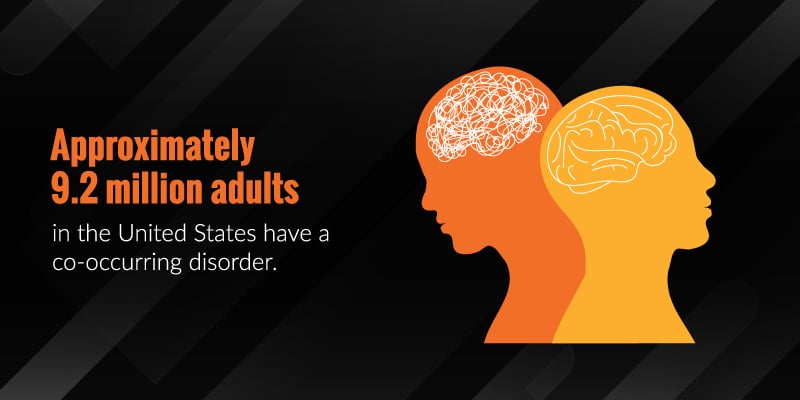Achieve Sobriety with Outpatient Rehab Denver Treatment Options
What is Rehab?
A drug and alcohol rehab is a structured treatment program. It is designed to help individuals overcome addiction and achieve long-term recovery.
A rehab program is comprehensive treatment that often takes place in treatment centers, but there are also many outpatient rehab Denver treatment options available.

What is the Goal of Rehab?
The primary goal of rehab is to reduce substance abuse or achieve a substance-free life. Outpatient rehab Denver treatment seeks to address all aspects of addiction. These programs provide individuals with the tools to break free from substance abuse.1
How To Know If You Need Rehab
Rehab is often necessary when you are struggling with substance use or mental health disorders. You may need professional help to overcome these challenges, which is nothing to be ashamed of.
Loss of Control
Physical Dependence
Impaired Functioning
Substance use disorder (SUD) can significantly impact your daily life, including:
- Relationships
- Work
- School performance
Co-Occurring Mental Health Issues
This might include disorders such as depression, anxiety, or trauma-related conditions. In such cases, you may need rehab to address both disorders.
Failed Attempts at Recovery
Dangerous or Risky Behavior
Social Isolation and Relationship Issues
If you or someone you know is searching for outpatient rehab Denver treatment options, Mile High Recovery Center can help you find and curate the treatment that fits your needs.

Signs or Symptoms That You or a Loved One Might Benefit From Outpatient Rehab Denver Options
- Using larger amounts or for a longer period than intended
- Neglecting or being unable to fulfill obligations at work or home
- Physical and mental health problems related to substance abuse, such as unexplained weight loss or gain or mood swings
- Strained or broken relationships due to substance abuse
- Experiencing financial problems as a result of spending a significant amount of money on obtaining drugs or alcohol
- Getting involved in legal problems related to substance abuse, such as driving under the influence or being in possession of illegal substances
- Experiencing withdrawal symptoms when attempting to stop or reduce substance misuse, such as tremors, nausea, or intense cravings
- Repeated unsuccessful attempts to quit or cut down on substance misuse on your own
- Loss of interest in activities that were once enjoyable
- Needing larger amounts of drugs or alcohol to achieve the desired effect
What Do These Signs Mean?
The presence of one or more of these signs and symptoms does not always mean addiction or the need for outpatient rehab Denver treatment options.
Substance use disorders are common, as they affect over 20 million Americans aged 12 and over. Mile High Recovery Center can help you in your search for outpatient rehab Denver treatments.4
What Types of Addiction Treatments Are There and How Do They Differ?
If you’re searching for outpatient rehab Denver options, you may come across a variety of addiction treatment services.
- Care
- Cost
- Flexibility
- Treatments provided
Residential Treatment (Inpatient Rehab)
- Detox (if needed)
- Individual and group therapy
- Medication management
- Holistic therapies like art or music therapy
- Aftercare planning
Partial Hospitalization Program (PHP)
A PHP offers a level of care that falls between residential and outpatient treatment. These programs involve structured, intensive treatment during the day while allowing individuals to return home in the evenings.
- Therapy sessions
- Medication management
- Group activities
- Education and skill building groups
A PHP is more flexible than residential treatment. This is because they allow individuals to maintain some level of daily life routines. Costs can vary depending on the program and location.
Intensive Outpatient Program (IOP)
An IOP provides a step-down level of care from residential or PHP treatment. They involve 2 to 3 hours of treatment sessions a day for 3 to 5 days per week. Individuals can live at home while attending the program.
- Individual and group therapy
- Relapse prevention strategies
- Aftercare support
Outpatient Rehab
Outpatient treatment is the least intensive form of addiction treatment. It involves scheduled therapy sessions once or twice a week. Outpatient treatment allows individuals to live at home and continue with their daily activities while treatment for addiction.
- Individual therapy
- Group therapy
- Education on addiction
- Relapse prevention skills
- Support networks
The appropriate level of care for an individual depends on factors such as the severity of addiction and personal needs.
If you’re looking for outpatient rehab Denver treatment options, you may want to consider getting a comprehensive assessment to help determine the most suitable type of treatment.
Who Benefits From Each Type of Treatment?
- Residential Treatment: Individuals with severe addiction, co-occurring disorders, or those who need a structured and supportive environment would benefit most from residential treatment.
- Partial Hospitalization Program: Those who have completed residential treatment or need a moderate level of care and have a stable living environment can benefit most from PHP.
- Intensive Outpatient Program: Individuals who have completed higher levels of care, have a supportive living environment, and show a level of stability in their recovery may benefit most from IOP.
- Outpatient Rehab: Those with mild to moderate addiction, a strong support system, and the ability to maintain daily responsibilities benefit most from outpatient treatment.

What to Expect from Outpatient Rehab Denver Treatment
The treatments that outpatient rehab Denver programs provide can vary. If you are looking for the right program for you, it is necessary to determine what your needs are and what type of treatment you may benefit from.
Most outpatient rehab programs include:
Individual Therapy
- Explore the root of your addiction
- Work on underlying issues
- Develop coping strategies
- Set goals for recovery
Individual Therapy
Group Therapy
- Connect with peers facing similar challenges
- Share experiences
- Offer support
- Learn from one another
Psychoeducation
- Addiction
- The effects of substances on the body and mind
- Relapse prevention strategies
- Coping skills
Family Therapy
Involving family members in the treatment process can be crucial for building a supportive and healthy environment.
Family therapy sessions aim to:6
- Improve communication
- Address family dynamics
- Educate loved ones about addiction
- Foster healing within the family unit
Medication Management
In some cases, outpatient rehab Denver programs may provide medication-assisted treatment (MAT). This is for individuals with opioid or alcohol addiction. These medications are used to help manage withdrawal symptoms and cravings.
- Methadone or buprenorphine for opioid addiction
- Naltrexone for alcohol addiction
What is MAT?
Relapse Prevention Planning
Relapse prevention is an important part of outpatient rehab Denver programs, as relapse rates among those with substance use disorders are between 40-60%.7
- Identifying risk factors
- Practicing coping skills
- Creating a personalized plan for managing cravings and high-risk situations
- Building a strong support network
- Establishing healthy routines
- Learning effective stress management techniques
A Closer Look at Relapse Prevention and Why It’s Important
What to Expect from a Typical Day in an Outpatient Rehab Denver Treatment Program
- Scheduled therapy sessions to address any underlying issues or concerns
- Psychoeducational sessions may be conducted to provide information on recovery strategies and life skills training
- Meeting with a case manager for help with accessing community resources and referrals to other healthcare professionals or support groups
- Working with treatment providers to track progress and conduct regular check-ins. This is to assess your well-being, address any concerns, and change the treatment plan if necessary
- Focusing on aftercare planning, which helps to support you in transitioning from treatment to the next phase of your recovery

Advantages and Challenges of Achieving Sobriety with Outpatient Rehab Denver Programs
Advantages of Outpatient Rehab Denver Treatment:
- Flexibility: Outpatient rehab allows you to continue living at home and maintain your regular daily routines. This flexibility can make treatment more accessible and convenient, especially if you have significant responsibilities or obligations.
- Supportive Living Environment: Outpatient rehab provides the opportunity to practice recovery skills and strategies in the real world.
- Lower Cost: Compared to residential or inpatient programs, outpatient rehab often has lower costs. This is because you are not residing in a treatment facility.
- Peer Support and Community Integration: Outpatient rehab often involves group therapy sessions. This sense of community and peer support can be empowering and help the sharing of experiences and insights.
Challenges of Outpatient Rehab Denver Treatment:
- Exposure to Risks: Remaining in your own home environment during outpatient rehab means you may be exposed to risks and temptations. This requires developing strong coping mechanisms to navigate these risks in an effective way.
- Potential Lack of 24/7 Support: Unlike residential programs, outpatient rehab only provides support during scheduled treatment sessions. This can be a challenge during times of crisis or urgent need outside of these scheduled sessions.
- Limited Focus on Detoxification: Outpatient rehab may not be suitable if you are experiencing severe dependence and need intensive medical supervision during detox.
- Availability of Support Systems: If you have limited support networks or live in an environment that is not conducive to recovery, you may face extra challenges in achieving and maintaining sobriety.
How Is Progress Towards Recovery Tracked in an Outpatient Setting?
- Initial assessments
- Personalized treatment plans
- Regular check-ins with treatment providers
- Substance use monitoring
- Attendance and participation in therapy
- Self-reported progress
- Achievement of treatment milestones
- Feedback from support systems
How Setbacks Are Managed and Prevented in Outpatient Rehab Denver Treatment
- Increased therapy sessions
- Adjustments to the treatment plan
- The implementation of extra support measures

How Can Mile High Recovery Center Help Denver Residents Struggling with Mental Health and Addiction Challenges?
How Can We Help?
Through our specialized programs, we provide a safe and supportive environment for you to address any mental health and addiction challenges. Our team works collaboratively with you to promote lasting recovery.
Get In Touch With Us Today
For more information about outpatient rehab Denver treatment options, get in touch with us today – we’re here to help you recover.
Resources
- https://www.ncbi.nlm.nih.gov/books/NBK64815/
- https://www.samhsa.gov/medications-substance-use-disorders/medications-counseling-related-conditions/co-occurring-disorders
- https://www.mayoclinic.org/diseases-conditions/drug-addiction/symptoms-causes/syc-20365112
- https://drugabusestatistics.org/
- https://pubmed.ncbi.nlm.nih.gov/10106610/
- https://my.clevelandclinic.org/health/treatments/24454-family-therapy
- https://nida.nih.gov/sites/default/files/soa.pdf
- https://www.verywellmind.com/what-can-i-expect-at-a-drug-and-alcohol-rehab-program-67865



